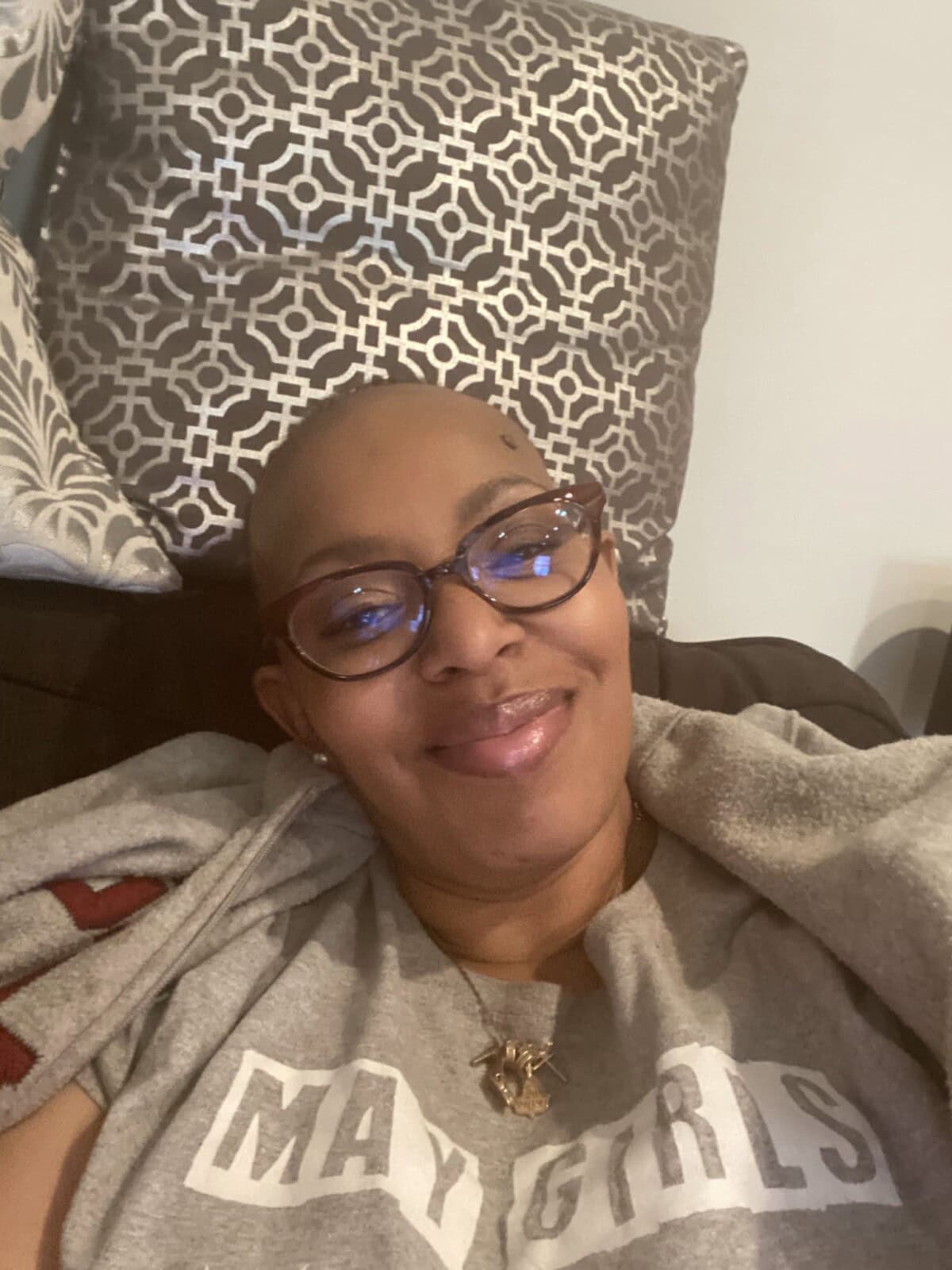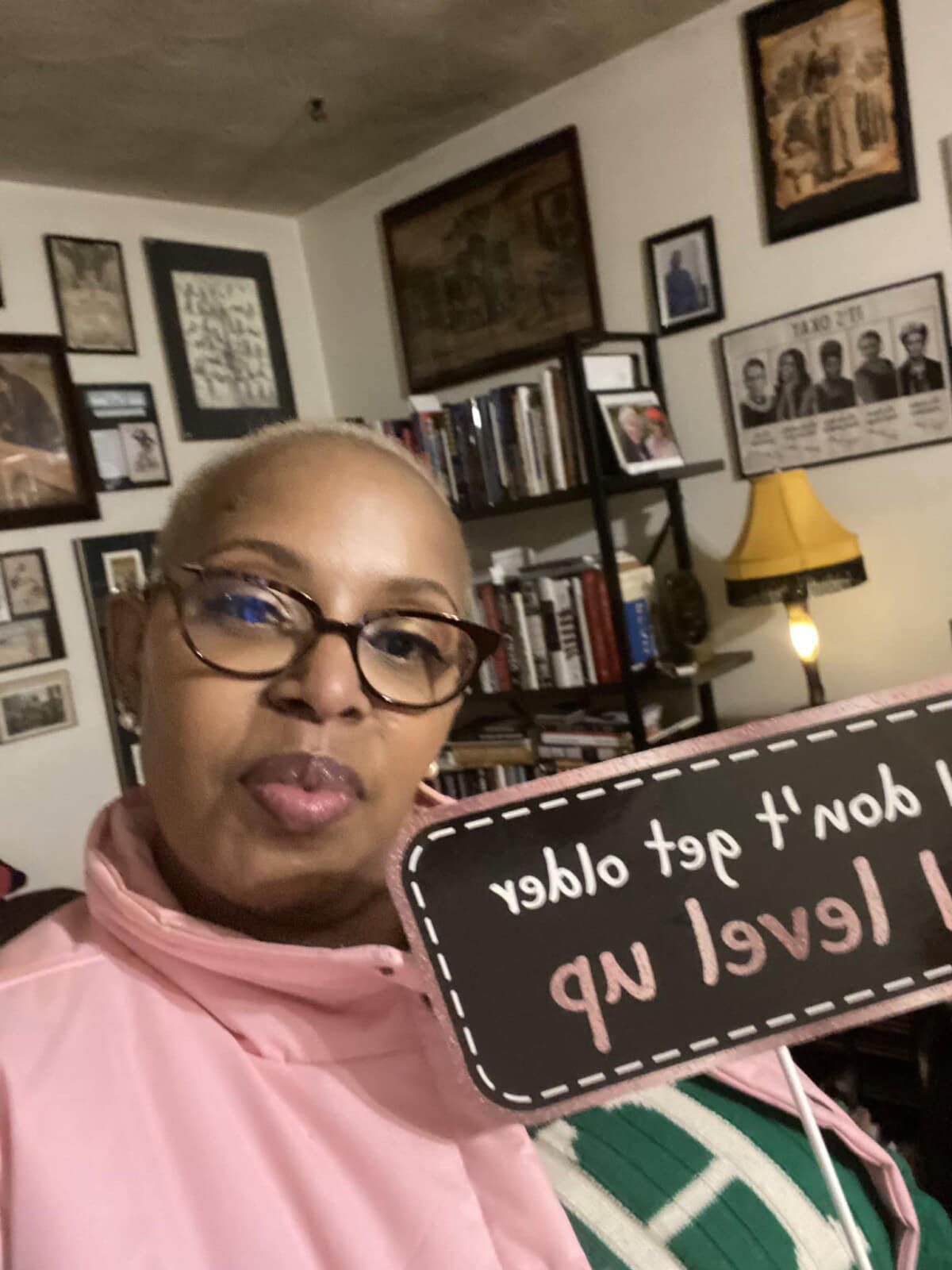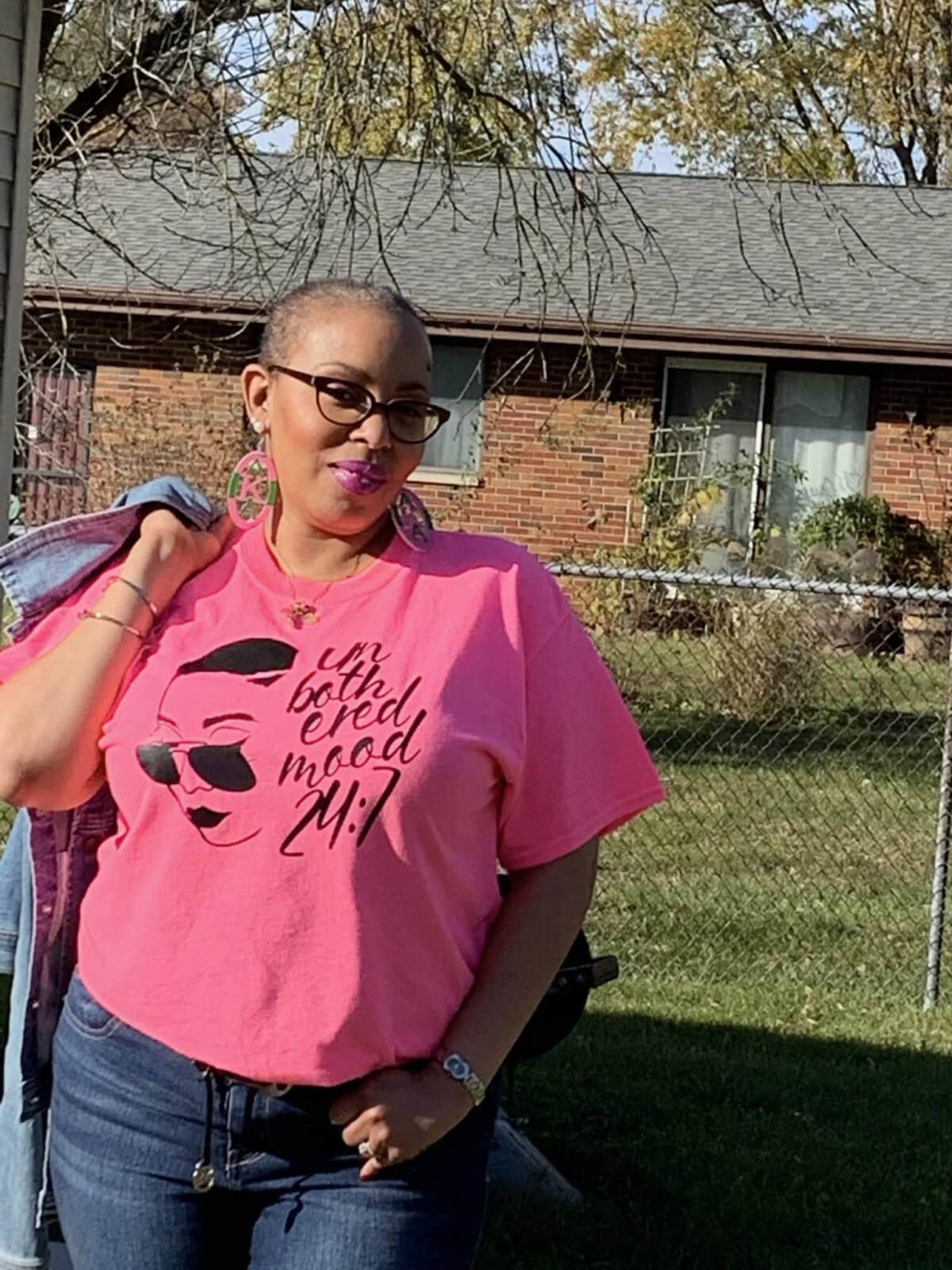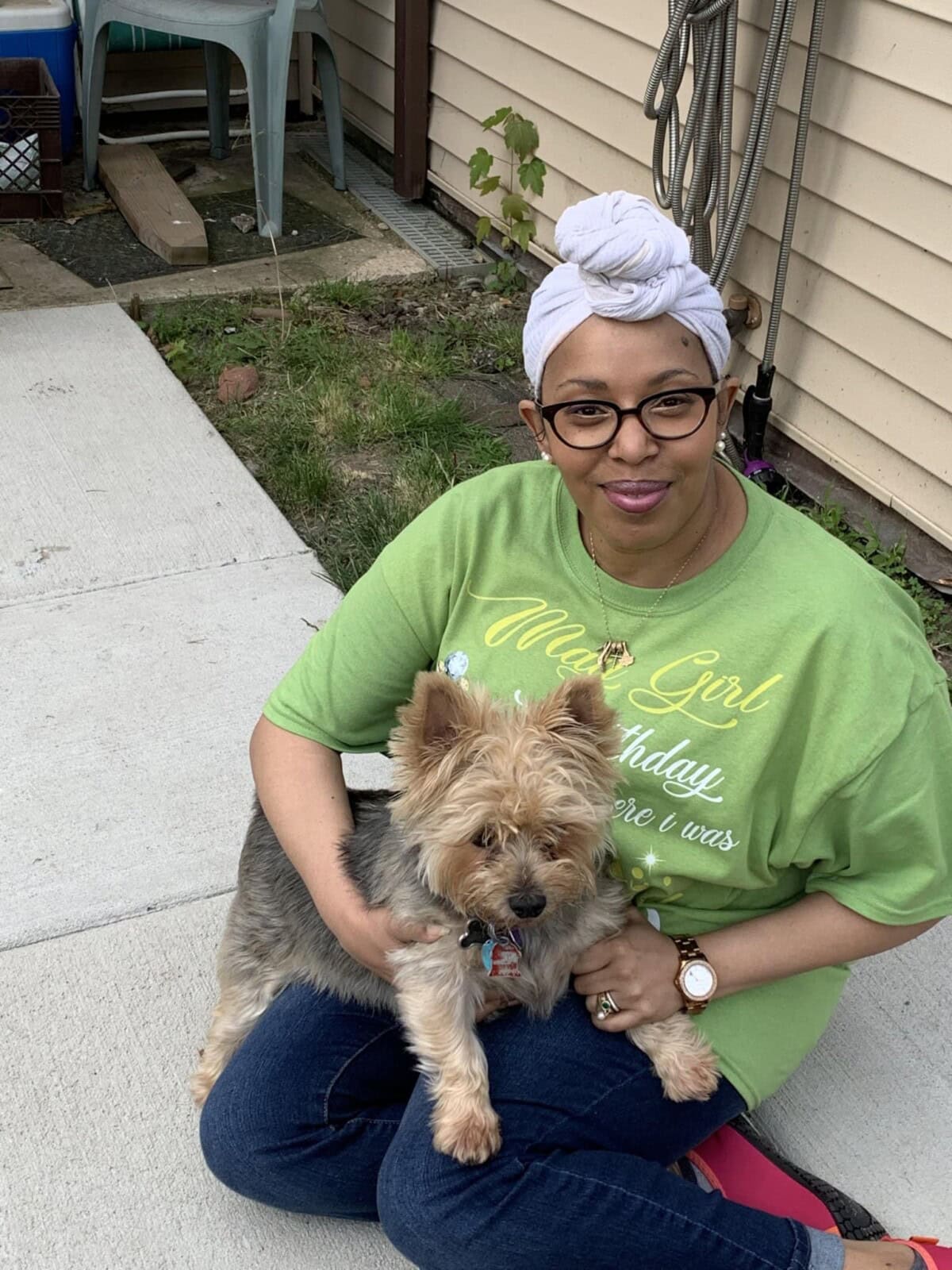STRENGTH IN EVERY STORY™
Kori’s Story, November 2024
As told by: Valerie Stevens, Edited by Fabiola Palomo
Diagnosis received: Migraine with aura, fibromyalgia, Intractable chronic migraine
Symptoms: Head pain, Fatigue

Kori’s experience narrows to a single point of suffering etched in her memory—a crushing, blinding, throbbing head pain, along her silent pleas: ‘Make it stop.’ ‘Help me!’
In her early twenties, Kori experienced her first severe migraine attack while working as a Special Education teacher’s aide for 3rd-4th grade children with learning disabilities and borderline behavioral disorders. It struck suddenly when taking her kids to music class.
As the pain engulfed her head, Kori found herself unable to move, frozen in place from pain, and unable to walk her kids back to class. This incident marked the beginning of Kori’s journey with headache treatment. Her migraine attacks soon became significant, occurring 7 days a month.
Confronting a Line of Pain
Headache disorders weren’t new to Kori — both her maternal and paternal grandmothers had experienced headache pain, though they were never openly discussed. She would later learn that their attacks were likely episodic and not chronic. One of her uncles had a more personal understanding of migraine, not only because his wife suffered from them, but because he would later live with migraine after a bike accident.
At 21, while attending Eastern Illinois University, Kori began experiencing menstrual-related headache attacks. At the time, Kori assumed they were just severe, painful tension-type headache attacks.

Despite the pain, she pushed through—attending classes, working, serving as a Resident Assistant, and joining Alpha Kappa Alpha Sorority, Inc. It wasn’t until she entered the workforce that a concerned co-worker noticed her frequent headache attacks, “Your headaches aren’t normal,” they said. After consulting with her doctor, Kori finally started receiving answers and became aware she was experiencing more than tension-type headache.
Finding Strength and Listening to a Word of Advice
Kori’s parents were her unwavering support system, but her father’s made all the difference. He retired early to care for Kori full-time, offering assistance and reassurance. His words became a source of strength, reminding Kori to live her best life despite her condition. “Don’t look how you feel. Look your best,” he would say—a reminder Kori carries with her. Kori laughed as she described how ‘‘sharp’’ her father always was, forever “dressed to impress.” To him, Kori is beautiful inside and out, a truth he never lets her forget. After a migraine attack, his advice echoes in her mind: “Recoup, put on your warrior outfit, and try it again
This support helped Kori seek quality care and persevere through the pain. Despite this, it was challenging for her loved ones to grasp her situation: “Understanding the pain was difficult for my parents,” Kori shared. This is especially true for her mother, who struggles to see others in pain.
Loss, Resilience, and a Search for Effective Treatment
Along the way, Kori lost friends who didn’t understand the reality of migraine disease. Even Kori’s extended family showed no support, often asking insensitive questions like, “Why are you sick all the time?” To protect her mental health, Kori made the decision to step away from her family for 4 years. During her time away from her family, Kori mulled over the situation before deciding, “I decide[d] not to pressure my family to change.” With time, her family became more understanding and considerate.
Kori knows all too well the heavy weight of living with such conditions, “Headache/ [and] migraine and the co-morbidities of the disease are a lot to handle,” she shared. With this, Kori experienced large-scale losses. Being unable to make plans led to Kori losing friends, becoming isolated, and feeling like an outsider.
Being chronically ill and exhausted all the time has taken a toll in more ways than one. The exhaustion, persistent pain, loss of employment, and leisure time have reshaped Kori’s reality. Yet, there remains a silver lining: some of her old friendships are rekindling, given that many of her friends are more understanding of what it’s like to live with chronic illnesses, experiencing them firsthand.
Determined to find relief, Kori sought help from chiropractors, massage therapists, and healthcare providers to treat her migraine attacks and fibromyalgia, but none of them helped find a treatment for her. Navigating various treatments with varying degrees of success was exhausting, but Kori never gave up.
It wasn’t until 1993-1994 that Kori received a diagnosis and successful treatment. She traveled 3 1/2 hours and 200 miles for effective headache treatment. For 25 years, her headache attacks were successfully managed at a Chicago-based clinic, thanks to excellent employer-provided insurance to help cover her care.
Now, on disability and Medicare — “Which isn’t the greatest,” she admitted—Kori has turned to St. Louis and Springfield-based neurologists for treatment. Unfortunately, her headache attacks remain poorly managed, and she continues searching for what might help her.
Seeking Trust and an Understanding in Healthcare

Still, Kori’s journey for quality treatment has left “a bad taste in her mouth,” and she is tired of being told, “Kori, you’re strong. You’ve been dealing with this for so long.”
Kori doesn’t want to be strong—she wants to be heard. Her lack of trust and belief in healthcare providers’ abilities has steadily declined. Accusations of drug-seeking have been made, including an urgent care doctor telling her never to return.
After an incident in the early 2000s, Kori started having chest pains and visited a cardiologist with her mother. Kori recalls carefully explaining her medical history, migraine diagnosis, and all medications and treatments to the cardiologist, only to be told, “You don’t have migraines; it’s tension [and] stress… You’re too young to have all this going on.”
This encounter deepened Kori’s frustration and reinforced her lack of trust with healthcare professionals. Kori’s conversation with the cardiologist also addresses the stigma surrounding migraine: “People have perceived me as lazy, a liar, a fake,” Kori said. Friends, family, co-workers, and even employers have accused her of seeking attention. “Suffering from a chronic invisible illness can be a lonely place,” said Kori.
Finding Peace While Living with Migraine
Despite the stigma and unpleasant experiences with doctors, Kori has found peace in accepting her condition. Acknowledging that she has intractable chronic migraine has allowed her to live her life to the fullest. “Lots of prayer, patience, love, and quiet time has gotten me to be the person I am today.”
She carefully manages her daily routine, going out when she feels up for it. “I’ve learned to trust my inner voice and listen to my body,” Kori explains. No longer a people pleaser, she prioritizes her own well-being: “Now I please me” and rejects the idea that strength solely defines her, “For a person living with chronic migraine, strong is like breathing.”
This acceptance allows Kori to focus on activities that bring her joy. Kori finds comfort in laughing, journaling, reading, listening to music, and pampering herself with relaxing showers or bubble baths. Kori enjoys watching documentaries, Disney/Pixar films, and reality TV shows. But her greatest source of joy in her life is her fur baby, Bentley.
“Always, every day, all day—whether sick or healthy—I absolutely cuddle and play with my fur-baby, Bentley.” Pets have always comforted Kori, but Bentley’s connection to her is special. When he was a puppy, he seemed to sense her pain. During one of Kori’s worst migraine attacks, Bentley curled his body around her head as if to shield her from the pain.
“I was surprised he could sense my migraine; it was so comforting,” Kori recalled. Since Bentley has been in her life, her headache attacks haven’t lessened, but the emotional support he provides has made a meaningful difference. As she continues to navigate the trials of intractable chronic migraine, Bentley offers her constant comfort and unconditional love.


Beyond helping others navigate and manage their headache and migraine attacks, Kori aims to build community and hopes to create a support group for African American women, “Do your research! It’s not only your RIGHT but your responsibility to actively participate in your healthcare – Follow your gut!” she advised. Kori warns that not all doctors who claim to treat migraine are equipped to do so: “… because a physician or neurologist claims to treat migraine, [it] doesn’t make it a reality.”
Kori wishes to be recognized as more than her illness, but rather as an intelligent, dynamic Black woman who is loved, sexy, and striving to live healthfully. “Most of all,” she said with pride, “I continue to walk and strut proudly in all of my blessings!”
"*" indicates required fields
